You can also check out this episode on Spotify!
How often do you think about your skeletal health? Too often, we take mobility, absence of pain, and physicality for granted—that is, until we are sidelined.
Whether we’re nursing a torn ACL, an arthritic hip, or an osteoporosis-related fracture, even temporary immobility can alter our physical and mental health. It can threaten our sense of self.

Health is about more than the absence of pain or disease; about more than just treating the physical symptoms of a condition. Health is about taking a holistic approach to wellness and recognizing that we are the integrated sum of complex parts. Health is about having awareness of data and the stories we tell ourselves, acceptance over the things we can't control, and agency over our life.
In today’s solo podcast, Dr. McBride discusses the importance of caring for our skeleton like we do our cars—taking it to the shop when it breaks down, and providing regular maintenance.
She gives three examples—including herself!—of people whose physical injuries force them to reckon with their health
How do you care for your skeleton? What can an injury teach you about your health? What is the relationship, for you, between mobility and mental health?
Join Dr. McBride every Monday for a new episode of Beyond the Prescription. You can subscribe on Apple Podcasts, Spotify, or at lucymcbride.com/podcast or at https://lucymcbride.Substack.com/listen.
Get full access to her free weekly Are You Okay? newsletter at https://lucymcbride.substack.com/welcome
Please be sure to like, rate, review — and enjoy — the show!
The full transcript of the show is here!
Dr. Lucy McBride: [Intro] Hello and welcome to my home office. I'm Dr. Lucy McBride, and this is Beyond the Prescription. Today. It's just you and me. Every other week this season, I'll talk to you like I do my patients, pulling the curtain back on what it means to be healthy, redefining health as a process of self-awareness, acceptance, and agency.
[00:00:28] In clinical practice for over 20 years, I have found that patients generally want the same things—a framework to evaluate their risks, access to the truth and data and tools and actionable information to be healthy mentally and physically. We all want to feel more in control of our health. Here, I'll talk to you about how to be a little more okay tomorrow than you are today. Let's go.
[00:00:56] [Episode] Hello, everyone and welcome to my solo podcast. Today we're going to be talking about skeletal health and what happens to our bodies and minds when we are out of commission. Today is the final game of March Madness, and I don't know about you, but I am pretty obsessed with March Madness. I love how it signals the beginning of spring.
[00:01:14] I love the friendly competition of all the brackets, and my family's pretty obsessed with the games. I am no basketball aficionado, but I really enjoy looking at the athleticism, the strength, and the grit on the courts. I also can't help but wonder what these guys are gonna look like when they're patients in their fifties, sixties, and seventies, for example, when they've had a lot of overuse injuries and they show up in the doctor's office, perhaps like mine.
[00:01:40] I think it's important we acknowledge we each have only one skeleton that drives us through life, and we cannot trade in our skeleton like we can our Honda or our Prius. We can only take care of it the best way we possibly can. We can only do maintenance. And I think it's interesting. Many of us take our cars to the shop to rotate the tires, change the oil, align the axles—more than we take care of our skeletons or take them into the shop.
[00:02:06] And by the shop, I mean to a physical therapist or other body. Okay, so why does this matter? Why do we need to think about skeletal health? Why do we need to think about injury prevention and why do we need to treat our skeletons at least as well as we do our cars? The short story is this: our skeletal health is foundational.
[00:02:26] A couple of months ago, I unveiled the visual representation of the way I think about patients’ health. I call it the four I’s. It's a two by two grid, and the way I think about health is that we are the integrated sum of these different components, these four I’s that intersect and that really talk to each other all day long.
[00:02:48] One I is information and data. The second I is inputs—all the things we put in our ecosystem. Another I is infrastructure—our skeletal health, the container that drives us through life. And this is what we'll focus on today. And the fourth I is insight. Our self-awareness and our understanding of how our story lives in our body.
[00:03:08] In this ecosystem, I have assigned an entire quadrant just to skeletal health. That is because our skeletons are essential and foundational to our whole health and the way we move our physicality directly affects our medical information. It also affects our insight and self-awareness, so it's essential that we care for the bones, the muscles, and the connective tissue that carry us through life.
[00:03:33] When these systems are going well, we tend not to notice. When we're walking, jogging, swimming, lifting our grandchildren, putting luggage in the overhead compartments and playing bridge, knitting, gardening, and living our lives without any discomfort or limitation, we tend not to notice. We tend not to pay attention to our skeleton.
[00:03:56] We end up taking it for granted and thinking it is going to be there for us whenever we need it. But guess what? Every now and then we blow a gasket. Every now and then the muffler starts rattling before we even blow the proverbial gasket. And what I see in my office is people who are experiencing pain, discomfort, limitations in their range of motion, limitations in their quality of life and their ability to do the things they want to do.
[00:04:22] And in the case of people who have exercise routines who are managing their cholesterol or their heart health, or their mental health with exercise, being sidelined has major, major consequences. It affects our physical health, our mental health. It can affect our sleep, it can affect our whole sense of self.
[00:04:39] Let me give you three examples. I have a number of patients who are student-athletes. Either they play high school sports or college sports. And you know, these young athletes are very accustomed to being strong, fast, nimble, and not limited in their ability to perform. And so when an injury happens, It can be devastating. Not only can they experience pain and disability, they can also experience a crisis of identity. Particularly as kids tend to specialize in sports earlier and earlier these days, their identity can very much easily get wrapped up in their sport and their performance. I have a patient who's a young woman who plays collegiate soccer at a very high level, and when she tore her ACL—which is an important ligament in the knee—in her season, she was devastated.
[00:05:26] She was experiencing quite a lot of pain after her surgery and was having a difficult time rehabilitating her knee. Unfortunately, the orthopedist was giving her more pain medicine—more Percocet—and that was making her feel more blue, more disconnected, and she came into my office wondering what to do.
[00:05:43] I'll give you a second example. An 80 year old patient of mine broke his femur. The femur is the thighbone, and he broke it because he fell and he has osteoporosis. Now this man was an incredibly proud man. He'd had an extraordinary career doing diplomatic work overseas and he had taken great pride and joy in caring for his beloved wife who had died three years prior from Alzheimer's. Mobility to him was not just about getting exercise, which he was good about doing to manage his heart health. It was also about socializing with his friends. It was about playing cards with the guys once a week. It was about taking his dog for a walk every evening and looking at the bench and the tree where he and his wife would sit every evening.
[00:06:26] In other words, mobility is not just about exercise. It is about our daily activities, our daily life, our daily ability to function. When he came into my office to talk about the upcoming surgery for his femur, he was noticeably distraught. He wasn't in pain physically, he was in despair over his loss of independence and sense of identity.
[00:06:48] I'll give you a third example, and it's me. When I was in college, I developed depression. I didn't know that's what it was at the time, nor did the myriad doctors I saw for the various physical symptoms I brought into them. In fact, they thought that I had things like giardia or an autoimmune disease instead of just asking me, are you okay, and basic screening questions about mood and anxiety and stress. One of the solutions that was suggested to me for this mysterious disease that no one could name, and for which I had no vocabulary to discuss, was running. And so I began running in college and running made me feel better. Running made me feel really good.
[00:07:25] In fact, running in retrospect was providing me with dopamine. It gave me pleasure and joy and some sense of relief from this uncomfortable feeling I was experiencing. But the problem was, guess what? When you only run and you don't do stretching and you don't do any other activities, you get injured. And I did. I developed tendonitis in my knees and I couldn't run, and guess what? I got depressed.
[00:07:46] The point of these three anecdotes is that our skeletons matter not for the reasons we often think. Most people understand that exercise is good for us, that it can help prevent everything from dementia, depression, and diabetes. And indeed I spend a lot of time in my office trying to help people exercise in ways that are sustainable and realistic for their lives. But the reason I so commonly emphasize movement, structural stability, structural integrity of our skeleton, is not just because exercise is cool, exercise is good for us. It's because we literally need our skeletons for our identity, for our mood, and for our ability to function. So when I'm talking to a patient about their skeletal health, I'm not simply saying exercise is good for you. Go do it.
[00:08:33] I want to know the why, the how, and the what. I want to understand what kind of movement gives them joy, what gives them pleasure, and what limitations in mobility they have that they might not even have identified? What are the things in their life that they live to do that requires skeletal mobility and flexibility and strength? Let's think about exercise, not just as a way to fit in your jeans or to run the next marathon. Let's think about it as a way to move through your everyday life.
[00:09:01] My other question is this—What hurts? What is your body telling you about what needs to change? I need to know if you're experiencing pain in your low back, because that may be a signal that we need to work on tightening up your core muscles or your pelvic floor. In other words, we need to listen to those mufflers when they rattle because they are telling us something. They are giving us clues to a part of our body that needs attending. And if I had one lesson for you today, it's to listen to your body. Listen to your skeleton. It matters. So to my patient who's torn her ACL and is recovering postoperatively, I want her to think about exercise in a new way.
[00:09:39] I want her to use this injury as an opportunity to reflect on her identity. I want her to think about—who am I beyond a college athlete? So as much as she didn't want to, she embarked on a project of increased self-awareness. She started doing daily meditation. She started cultivating friendships with people who are not athletes and realizing that, wow, there's a lot more to school and to her social life than playing soccer. Her injury had actually given her permission to explore the ways in which her physicality was central to her identity, but also not sufficient to define her.
[00:10:13] So was there any silver lining for my patient who broke his femur? Well, not right away. After a surgery like that, you're in rehabilitation for many months. You're doing physical therapy twice a week and really building back your strength gradually. As you may or may not know, when you break your femur, it causes atrophy of the surrounding muscles, the glutes, the hamstrings, the quadriceps, and it's a lot of work to rehabilitate those muscles, particularly when you're older.
[00:10:41] So I wouldn't say that there was a real silver lining for this gentleman, but I would say that it forced him to reflect on his mortality in a way he hadn't done. Having to plumb the depths of his grief without the benefit of exercise and socialization as he had been accustomed to since his wife died. It forced him to reckon with a lot of uncomfortable feelings that he had not dug up. And while I wouldn't wish that on anybody, he did tell me towards the end of his recovery from his hip surgery that he had learned more about himself having been sidelined than he would've other. So after his recovery, I reminded him that he was really, really one of the healthiest 81 year olds I'd had in a long time.
[00:11:20] And finally, what about me? So when I was injured and I could no longer run in college, I connected the dots between my physical self and my mental health, and that was a valuable lesson. It was painful because I had no other tools in the toolkit to manage depression. I had nothing. Moreover, I didn't have any vocabulary with which to talk about feelings, and I didn't have healthcare providers to know how to guide me or even to make an appropriate diagnosis. But it did force me to really dig deep into my internal arsenal of tools and to cultivate other coping strategies because I had to, I had no other choice. So what is my point in telling you about these three anecdotes? It is to say that movement, physicality, mobility, range of motion, absence of pain, those things we take for granted until we're sidelined.
[00:12:14] I ask you to do this. Think about your skeleton for just a minute. Take a survey, going from your neck all the way down. What is hurting? What is tight? What is strong? What is weak? What hurts? Taking stock of our muscles, our bones, our joints, and our structural integrity, and taking that moment of mindfulness about our own bodies is step one.
[00:12:41] Step two is the context. What about your skeleton is allowing you to do the things in your life you want to do and what is holding you back? Maybe you have no problems with your skeletal health because you're young, because you happen to be an athlete and because you just haven't been injured. Or maybe you can do the things you want to do because you've worked really hard on pelvic floor muscle tone since you've had three children, and that is the reason your herniated disc is no longer bothering you and that is important to you because when your back goes out, you're unable to live your life. And maybe you're someone who has knee pain and is slowly and gradually limiting your mobility. You're taking the elevator, you're avoiding long walks with your friends, you're taking more Advil and you haven't yet registered that discomfort.
[00:13:26] I encourage you to register what your body is telling you, and then, what is the context? What is that limitation in mobility or in comfort? How is that limitation in your mobility and comfort affecting your everyday life?
[00:13:38] Step three: What is the relationship between your physicality and your mental health? Is exercise good for your mood? Does it help you feel less anxious and more focused? Or do you feel like you are a victim of your own exercise routine such that you're anxious and stressed and dreading getting up in the morning because you know you have to get up so early to go to that class because you said you would. And then ask yourself, how do you feel when you've exercised or you've been in a good routine, and how do you feel when you've been out of a routine or you've been sidelined? What does that do to your sense of wellbeing, your sense of self, your sense of identity?
[00:14:14] And step four: How does regular exercise or just being mobile and living without limitations or pain affect your relationship with food and the content of what you eat? Those inputs in that one quadrant? For so many people, the absence of pain and the ability to move and exercise is directly tied to their ability to eat intuitively and to eat nourishing, healthy foods.
[00:14:38] And step number five: how does movement, mobility, and exercise affect your physical health? Your lab tests, how much better is your blood pressure, your heart rate, your blood sugar, and your weight, if that's what you're working on in the doctor's office. And how good do you feel when your doctor gives you that “hooray! Your blood pressure is so much better and you can attribute it to your exercise routine.” As it turns out, our skeletons provide a map for multiple parts of our lives. They offer us clues about who we are, why we get up in the morning, why we get moving every single day. So let's pay attention to them.
[00:15:15] Let's not wait until we blow a gasket or get sidelined from the court. And even if you're sitting on the couch right now with a big bowl of popcorn about to pop on that NCAA finals game, let's try to treat our skeletons like the foundation to our health that they are. We have one vehicle to drive us through life. Let's care for it like we do our cars and keep moving. Thank you so much for listening. I would be thrilled if you shared, liked and commented on this episode. Your feedback means everything to me. Thank you so much for listening.








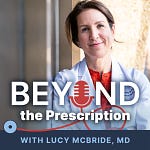
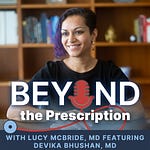

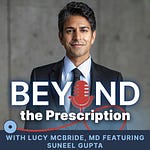
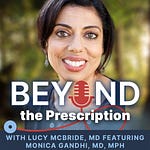
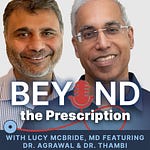
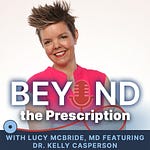
How to Turn Injury into Opportunity